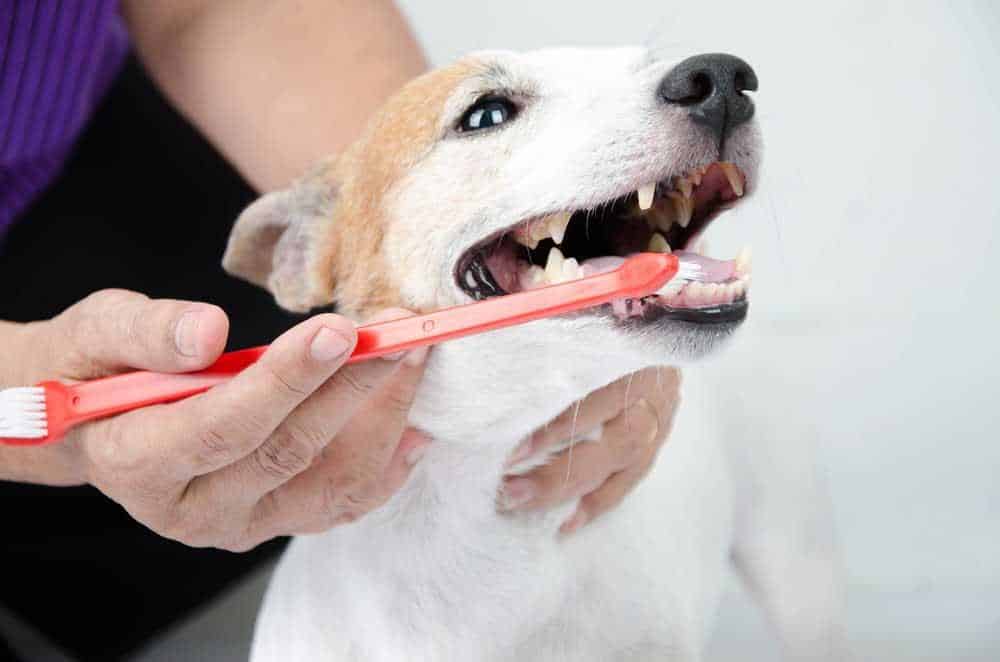Essential Pet Dental Health Routine Tips for Your Furry Friend

Maintaining your pet’s dental health is a vital aspect of their overall well-being. Dental care plays a significant role in preventing common issues such as plaque build-up, tartar, and gum disease. Whether you’re a first-time pet parent or an experienced one, knowing the right dental health routine tips can keep your dog happy, healthy, and smiling. In this article, we will explore effective pet dental health routine tips that you can incorporate into your daily care regimen.
Why Pet Dental Health is Important
Before we dive into the routine tips, it’s crucial to understand the significance of dental health in pets. Just like humans, pets can suffer from oral health problems, which can lead to severe conditions like gingivitis, tooth loss, and infections. Unfortunately, many pet parents overlook dental care until their pets show signs of discomfort or bad breath. Regular dental care helps your pet maintain a clean mouth, fresh breath, and overall good health.
1. Brushing Your Pet’s Teeth Regularly
One of the most important and effective pet dental health routine tips is brushing your dog’s teeth. Regular brushing helps prevent plaque buildup and reduces the risk of gum disease. Aim to brush your pet’s teeth at least 2-3 times a week, though daily brushing is the most ideal.
Use a pet-friendly toothbrush and toothpaste. Never use human toothpaste, as it can be harmful to your pet. You can also start by getting your dog used to the brushing process slowly. Begin by massaging their gums with your finger, then introduce a toothbrush and toothpaste. Gradually work up to brushing all the teeth.
2. Incorporate Dental Chews into Your Pet’s Routine
Dental chews are an excellent way to keep your pet’s teeth clean and healthy. These chews help scrape off plaque and tartar while providing a satisfying treat. Look for dental chews that are specifically designed for pets, like the Whimzees Occupy Antler Dog Chews – Medium, available on AVW.au. This product is designed to help clean your pet’s teeth while also offering a fun and engaging chew.
The chewing action of dental chews like Virbac Veggiedent Fr3sh Medium Dog Dental Chews (available in a 15-pack) can be a great addition to your pet’s dental routine. These chews not only clean your pet’s teeth but also freshen their breath, helping to maintain overall oral hygiene.
3. Provide Chew Toys for Dental Health
Chew toys are another excellent tool for promoting dental health. When your pet chews on toys, the action helps clean their teeth and massages their gums. Some chew toys are designed specifically for this purpose and are made with materials that gently clean teeth without causing harm. Rotate the toys to keep your pet engaged and ensure they have a variety of textures to chew on.
Ensure the chew toys you provide are appropriate for your pet’s size and strength. Too hard of a toy could damage their teeth, while too soft of a toy might not provide adequate dental benefits.

4. Schedule Regular Vet Check-Ups
Even with a solid dental health routine at home, regular vet check-ups are essential to ensure your pet’s oral health is in top shape. Your vet will check for signs of dental problems, such as gingivitis, tooth decay, or infections, and recommend professional cleaning if needed.
During your visit, ask your vet for advice on maintaining your pet’s dental health. They may suggest additional dental care products or treatments that can benefit your pet based on their breed and age.
5. Offer a Balanced Diet
A well-balanced diet also plays a significant role in your pet’s dental health. High-quality food helps support strong teeth and gums. Dry kibble, in particular, can aid in keeping teeth cleaner by reducing plaque buildup. However, soft food may stick to the teeth and contribute to plaque formation. Combining both dry and wet food options can provide a balanced approach.
Additionally, some pet food brands offer specialized dental health formulas that contain ingredients designed to promote oral health. Ask your vet about such food options to keep your pet’s teeth healthy.
6. Watch for Warning Signs of Dental Issues
It’s essential to monitor your pet’s oral health closely and be aware of warning signs that might indicate a dental problem. Some common signs include:
- Bad breath (halitosis)
- Difficulty eating or chewing
- Red, swollen, or bleeding gums
- Excessive drooling
- Discolored or loose teeth
- Pawing at the mouth
If you notice any of these symptoms, it’s important to take your pet to the vet as soon as possible for a proper diagnosis and treatment.
7. Consider Dental Cleanings When Necessary
While regular brushing and chews can help prevent dental issues, your pet may still require professional dental cleanings at the vet. Professional cleanings are typically done under anesthesia and help remove tartar and plaque that cannot be removed by brushing alone.
Your vet will recommend how often your pet should undergo a dental cleaning based on their oral health condition. Some pets may require cleanings every year, while others may need them more frequently.
8. Be Consistent with the Routine
Consistency is key when it comes to maintaining your pet’s dental health. Establish a regular dental care routine and stick to it. Incorporate daily or weekly brushing, along with dental chews, toys, and a healthy diet. Over time, these habits will help your pet maintain a healthy mouth and prevent the need for costly treatments down the road.
9. Use Water Additives or Oral Sprays
There are various water additives and oral sprays available in the market that can help support your pet’s dental health. These products are typically added to your pet’s drinking water and can help reduce plaque and tartar buildup, freshen breath, and support overall gum health.
If your pet is hesitant to have their teeth brushed, water additives or oral sprays can be a great alternative to keep their dental health in check.
10. Avoid Giving Harmful Treats or Foods
Certain foods, like bones, rawhides, or treats that are too hard, can cause more harm than good to your pet’s teeth. Avoid giving these items to your pet, as they can crack or break their teeth, leading to painful dental issues.
Conclusion
Establishing a good pet dental health routine is crucial for your pet’s well-being. Brushing their teeth regularly, providing dental chews like Whimzees Occupy Antler Dog Chews – Medium and Virbac Veggiedent Fr3sh Medium Dog Dental Chews, scheduling regular vet check-ups, and offering a balanced diet are all effective ways to maintain oral health. Remember, consistency is key, and by following these tips, you can ensure your furry friend enjoys a lifetime of happy, healthy smiles.
For more information about maintaining your pet’s dental health and to browse a range of dental products, visit AVW.au, your go-to source for quality pet care.
Tags

Dr. Evan Shaw
Dr. Evan Shaw is an Australian veterinarian, a passionate animal advocate, promoting the philosophy that prevention is always better than cure.
His mission is to empower pet owners by providing expert advice and easy, consistent access to comprehensive pet protection.
What do you think?
Related Articles

How Do Indoor Cats Pick Up Parasites?
Flea and worm treatment is imperative for the health of all cats, even if you don’t believe that your indoor cat is at risk of

How Can I Tell If My Dog Has Fleas?
Protecting your dog from common parasites, such as fleas, is simple with the variety of dog flea treatment options available. But, how do you know

Top Dog Food for Hip & Joint Care: Best Nutrition for Active, Healthy Dogs
As dogs grow older—or if they’re large, athletic, or highly energetic—they’re more likely to face hip and joint challenges. Stiffness, arthritis, or reduced mobility can
